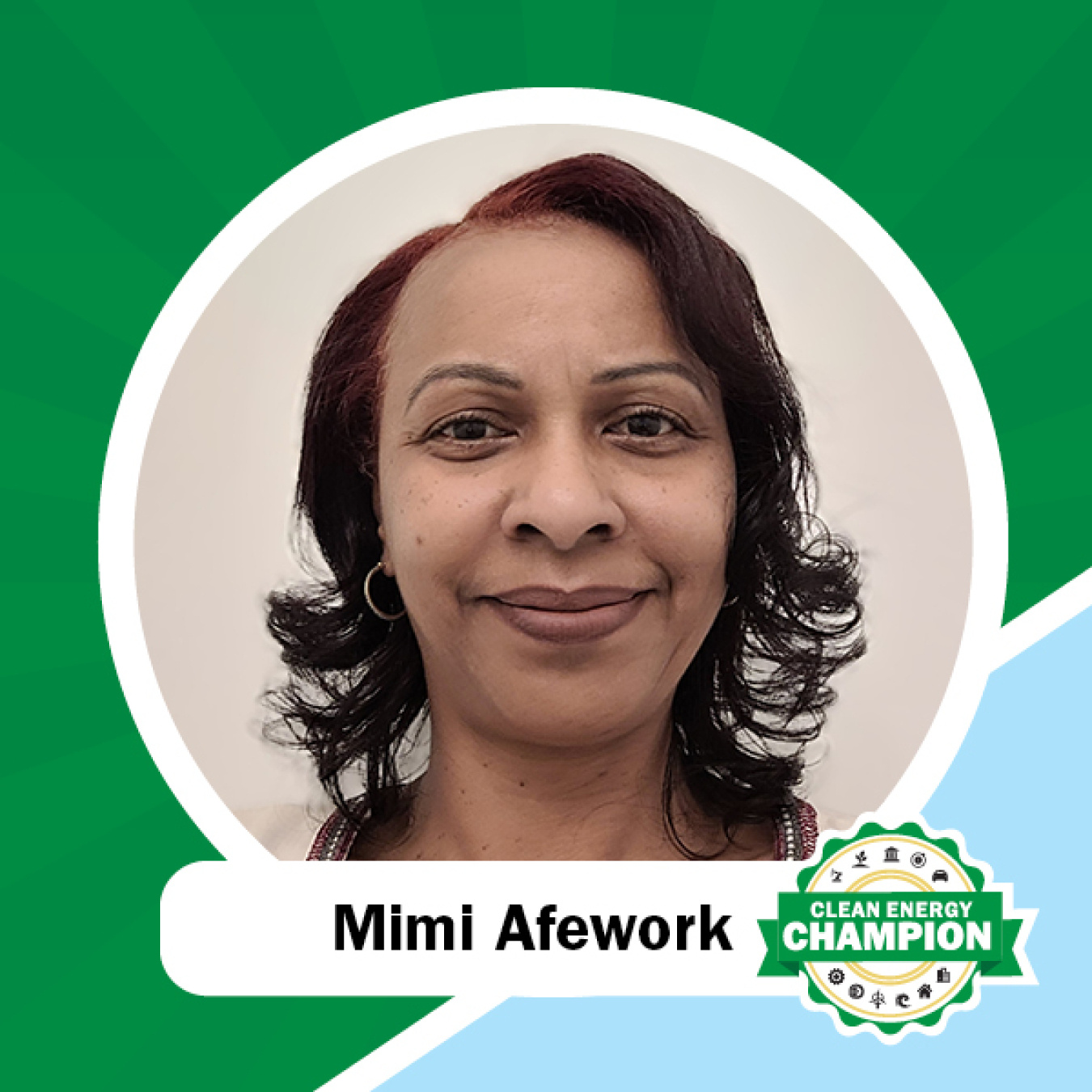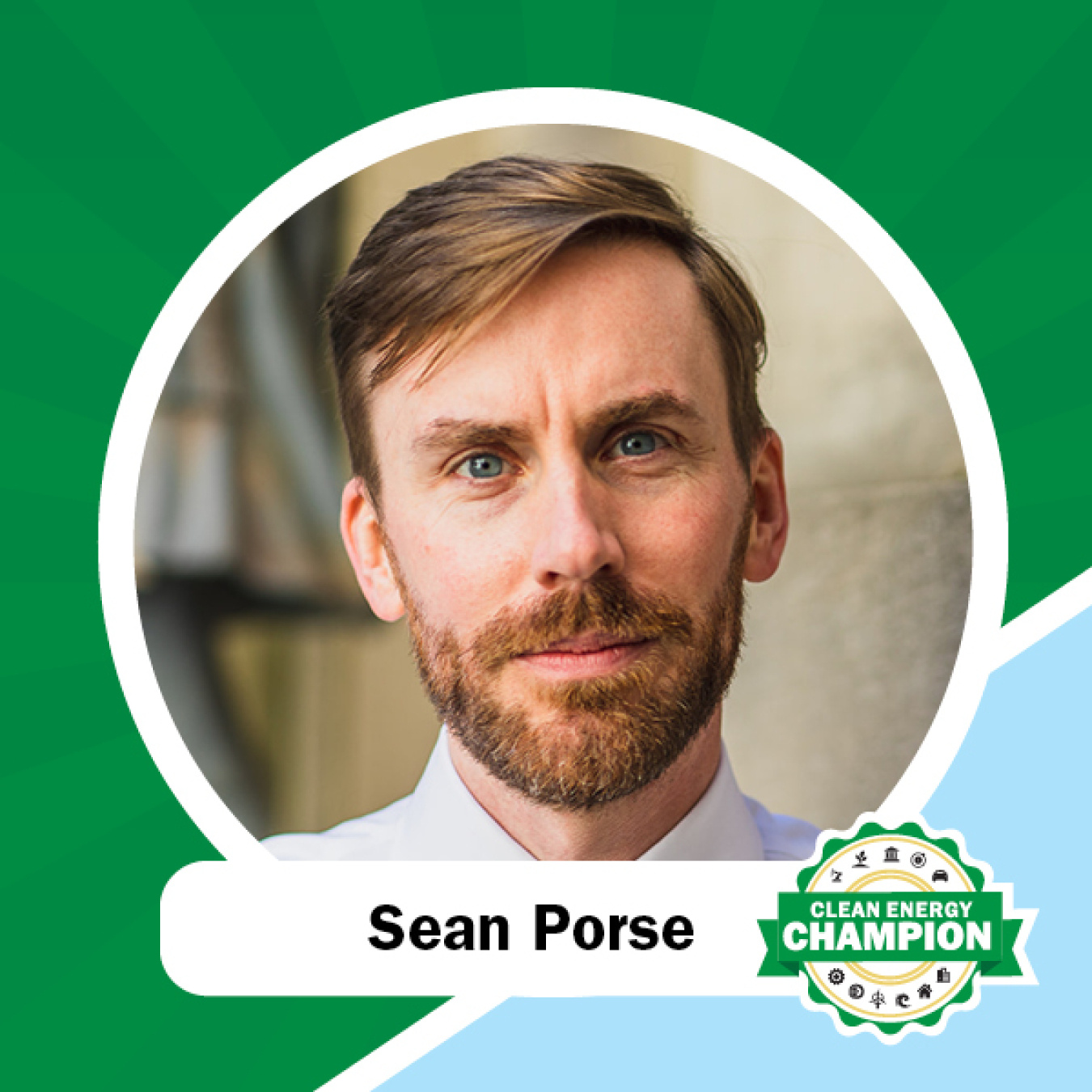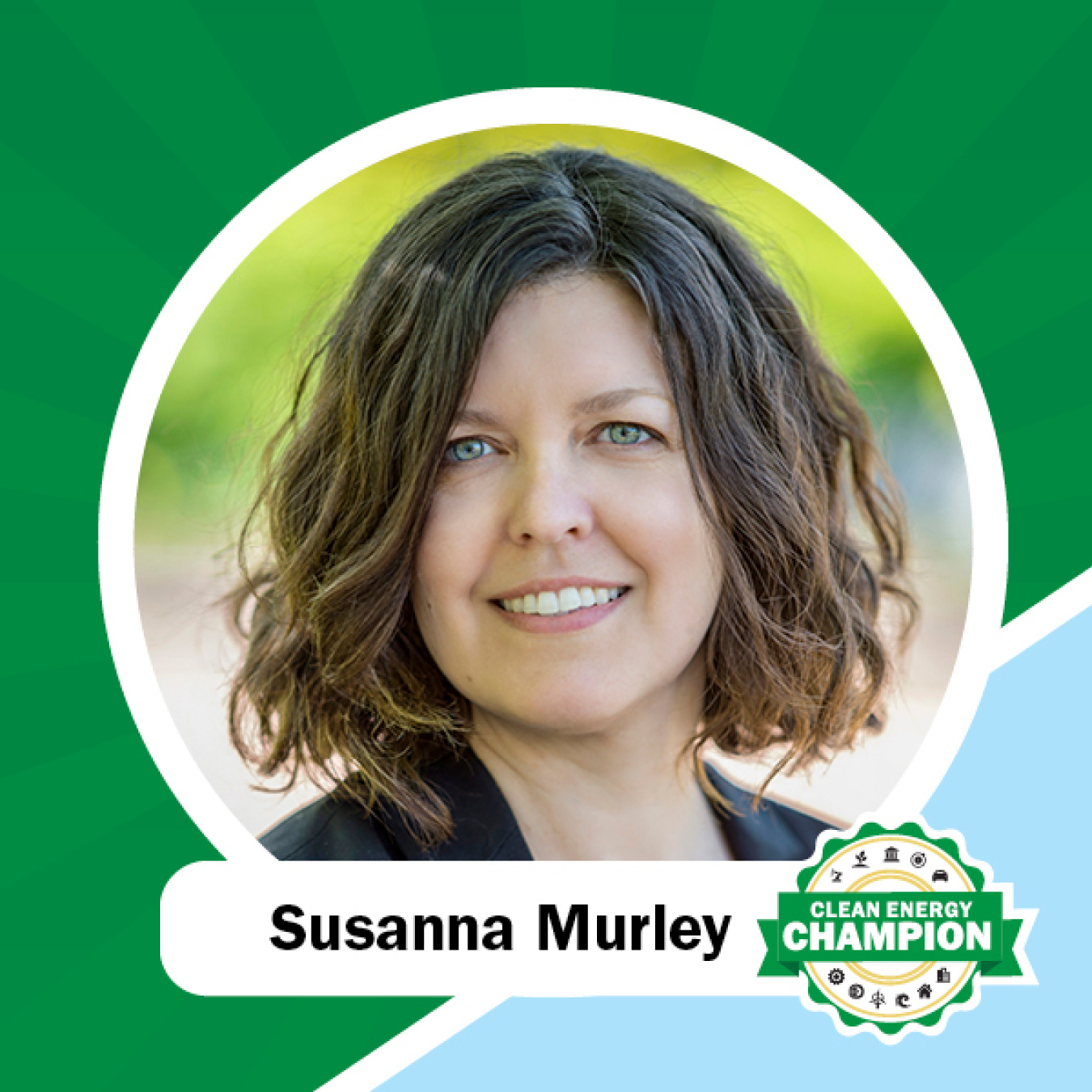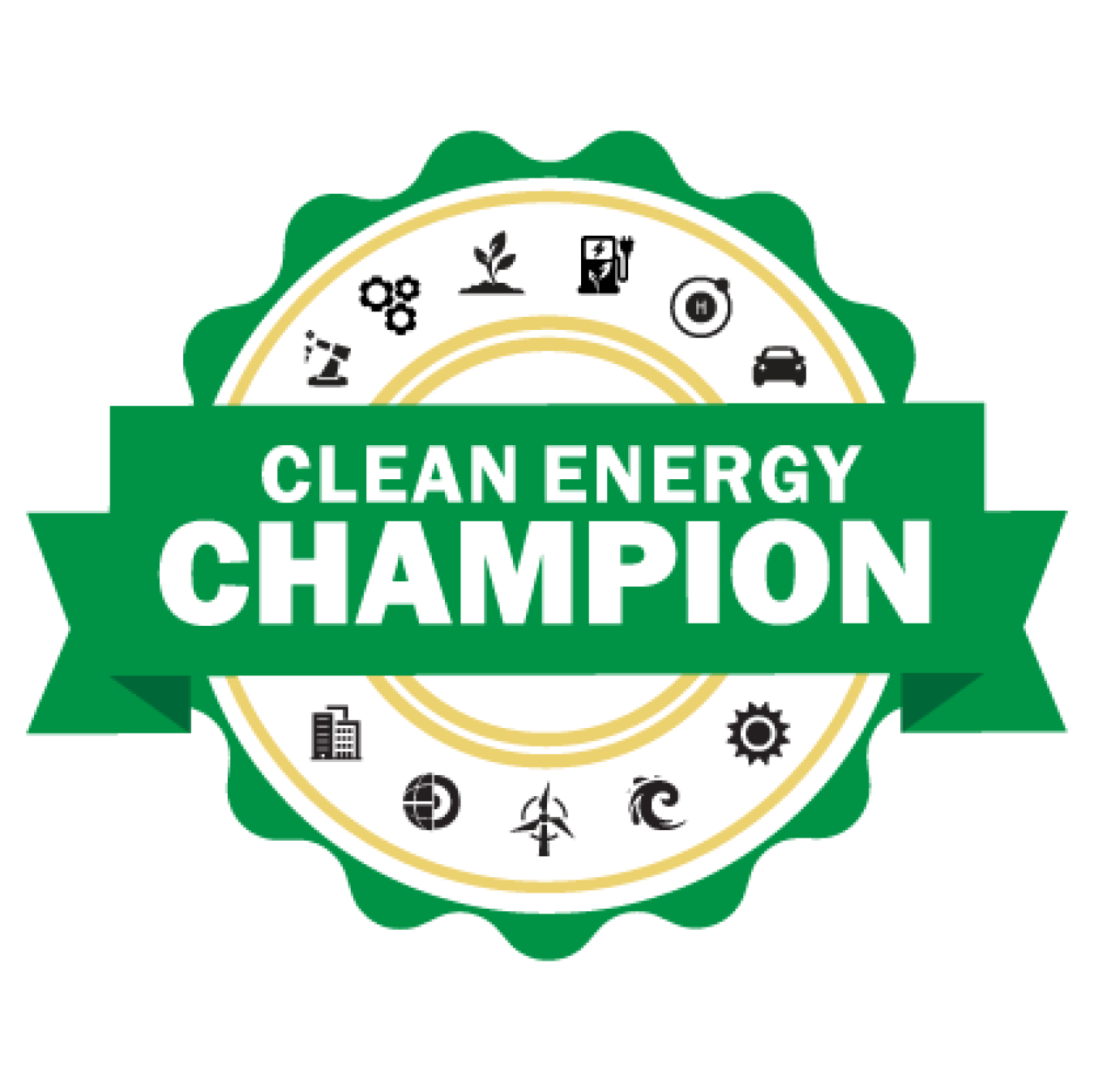This is the seventh in a series of stories about Clean Energy Champions—real people who are taking action to support or join the transition to a clean energy economy. Their stories illustrate the many ways you, too, can become a Clean Energy Champion.
Since 1985, the United States has celebrated Public Service Recognition Week to honor the people who serve our nation as federal, state, county, and local government employees. Here, you can meet some of them who work at the U.S. Department of Energy (DOE) Office of Energy Efficiency and Renewable Energy (EERE).

Mimi Afework
Management and program analyst, Office of Business Services Management
20 years of public service
What drew you to public service?
I was drawn to public service because I wanted a career that was about helping people and solving problems. I wanted to collaborate and be part of a team that was working to make life better for ordinary people, not shareholders.
What aspect of public service do you find most rewarding?
The most rewarding aspect of public service is knowing that you are part of something bigger and greater than yourself or the current moment. Legislation or initiatives enacted today can improve the quality of life for Americans and others around the world, keeping the U.S. safe and competitive for years to come.
What was your path to EERE/your career in clean energy?
I started at DOE 20 years ago as a contractor working for a small IT company that provided email, LAN, and application support to EERE and other organizations. For 18 years, I supported business processes, applications, and IT services for the EERE community. The experience and knowledge I obtained helped me transition to a federal management and program analyst position in EERE.
What advice do you have for Clean Energy Champions who want to pursue careers in public service?
Figure out what you want to do, and what you can do now. Determine what existing public service jobs align with your current education or work experience. However, be flexible and open to other opportunities you may have overlooked, because your dream job may not be available yet. It’s important to gain experience, and getting your foot in the door is the first step to a career in public service.

Sean Porse
Lead analyst, Geothermal Technologies Office
10 years of public service
What drew you to public service?
I have always been civic-minded and was drawn to public service to apply my geoscience background at the U.S. Environmental Protection Agency (EPA). That job quickly demonstrated another huge benefit of a career in public service: working with an inspired group of colleagues dedicated to taking on the toughest challenges facing our society. At DOE, the story is the same. It’s the people who make our workplace so amazing and keep me inspired to continue pushing for solutions that unlock a decarbonized future.
What aspect of public service do you find most rewarding?
We have access to unprecedented resources at DOE—world-class colleagues, facilities, and research—that can turn ideas into huge opportunities to enact sweeping change and innovation. It can take a long time to point those resources in the same direction to support an initiative! But once that happens, it is so rewarding to see the amazing innovations that result.
What was your path to EERE/your career in clean energy?
My job with EPA offered the opportunity to collaborate with DOE national labs, and I was so impressed by the depth and breadth of their technical knowledge. That collaboration spurred me to pursue graduate school and put DOE on my radar for post-graduate plans. Once I graduated, I felt the pull to come back to public service and was fortunate to be selected as a 2014 Presidential Management Fellow. The PMF program opened the door to EERE and the Geothermal Technologies Office, and it has been a fantastic place to be ever since!
What advice do you have for Clean Energy Champions who want to pursue careers in public service?
The options for a clean energy career path are multiplying rapidly, and this is particularly true for the subsurface energy sciences. For those with ambitions to apply their geoscience backgrounds to become Clean Energy Champions, know that the tent is big here at DOE and other agencies for your skills! Find organizations that interest you, and reach out to their staff to learn more about what they do. Remember that USAJOBS isn’t the only path to getting a job in the federal government. There are internships, fellowships, and programs like the Clean Energy Corps that can get your foot in the door!

Susanna Murley
Communications team lead, Solar Energy Technologies Office
6 years of public service
What drew you to public service?
As someone who loves the power of narrative, I have always wanted to work for an organization that has a story that I believe is important and meaningful. That’s what drew me to working on a technology solution to the climate crisis that will transform the way we live and work for the better. After many years in climate advocacy, I realized how important the government is in the energy transition. I want to make sure everyone knows about the role it’s playing in advancing clean energy technologies.
What aspect of public service do you find most rewarding?
Working with people who care as much as I do—and the fascinating conversations I have. In the Solar Energy Technologies Office, I have no problems finding someone who is willing to go deep on explaining voltage and frequency control, bandgaps, or why doping might be a good thing for photovoltaics. I can go as far as my curiosity takes me. At DOE, that level of expertise and engagement in the work is everywhere.
What was your path to EERE/your career in clean energy?
One of my first jobs was at the Washington Area Bicyclist Association. That got me into climate advocacy and then into the solar industry. I like to wear many hats, so doing communications has allowed me to work across a variety of issue areas, to write and edit creative or technical pieces, to go from diving deep into analytics and fixing a bug on a website to crisis communications. Working to end climate change and get society to be more sustainable seems like the best use of my skills and talents, and there’s no better place to apply them than in public service.
What advice do you have for Clean Energy Champions who want to pursue careers in public service?
I think the best advice I got when I started my career was to "make yourself useful." I’ve interpreted that to mean learn how to do all aspects of the job, don’t have an ego, and do what your team needs to get the work done.
Clean Energy Jobs
EERE is hiring! Check out these career opportunities, and read more about jobs for Clean Energy Champions.
Clean En∙er∙gy Cham∙pi∙on
/klēn/ /ˈenərjē/ /ˈCHampēən/
noun
1. A person or group that takes action to support or join the transition to a renewable energy economy, with the knowledge that reducing carbon emissions provides daily benefits to every American so they can live happy and healthy lives.

